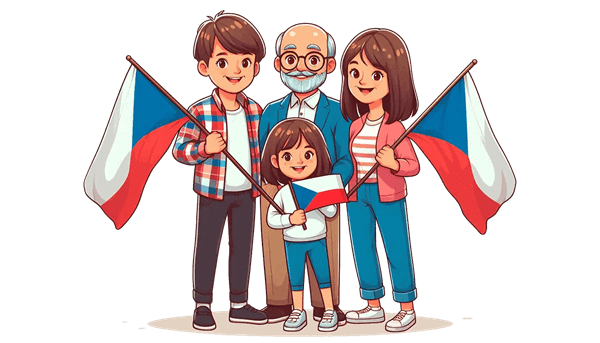We are people!
Let's prevent the ban on acquiring Czech citizenship!


Who Are We?
We are a group of proactive people dedicated to preventing an amendment in the Czech Republic that blocks Russians from obtaining Czech citizenship.
Hidden within a bill on aid for Ukrainian refugees, the amendment forces renunciation of Russian citizenship and halts the processing of new and existing applications.
We aim to protect the rights of those affected.

What Is It About?
The proposed amendment forces Russian citizens to renounce their citizenship, while simultaneously halting the processing of Czech citizenship applications indefinitely.
This contradictory measure prevents progress for both new and ongoing applications, potentially freezing the process for many years or even decades.
For further details, check our legal review and FAQ.

How Can I Help?
With the help of 17 senators and a lawyer, we filed a proposal to cancel the amendment to the Constitutional Court of the Czech Republic.
However, the fight is not over yet. While we await the court’s decision, it is important to continue to spread information among the public about the problems with the amendment and its real impact.
Petition on PETICE.COM
Collection of signatures continues!
Petition on GOV.CZ
Collection of signatures is now closed.
The collection of signatures took place from September 12 to September 24, 2024, 1572 signatures were collected and sent to the Chamber of Deputies.
This petition was discussed in the Petition Committee of the Parliament of the Czech Republic, to which our representatives were invited. Later, arguments from the petition were heard from the parliamentary tribune in the parliament during the discussion of the law.
The authors of the site are not responsible for various statements and actions of other individuals and organizations.